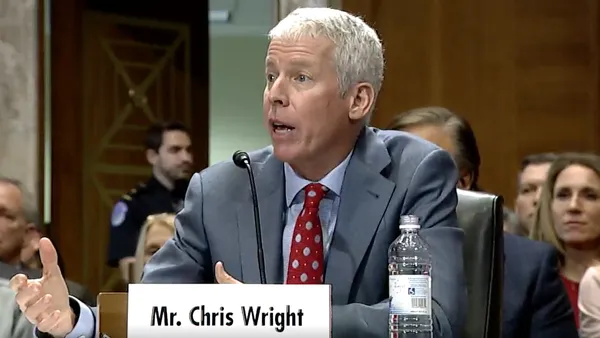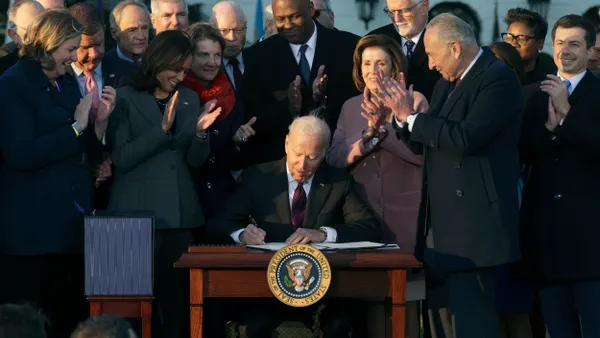Dive Brief:
- The City of Portland and Multnomah County, Oregon, this week announced they are aiming for 100% renewable power by 2035 and a complete transition to carbon-free energy, including the transportation sector, by by 2050.
- While more than two dozen cities have already made renewable energy commitments for their power mixes, (Chicago vowed just last week to take its public buildings all-renewable), the enhanced goal to shift all of Portland's energy sources will be a challenge.
- Portland already powers all of its city-owned building operations with renewable energy; Multnomah County will purchase green energy to meet its operational needs beginning next year.
Dive Insight:
A 100% renewable power goal is no longer an extreme vision, at least in terms of aspirational goals. About 25 cities have already made the commitment, and more than 90 major corporations as well, according to Sierra Club.
But Portland's vision goes a step further, and includes the complete transition of the city's transportation fleet to electric vehicles.
“I would be the first to say these are stretch goals,” Mayor Ted Wheeler told the Portland Business Journal. “I believe they are achievable, but they can’t be achieved through passive means."
In a statement, the city said transitioning to all-renewable energy would mean fostering Portland-area firms that produce low-carbon and environmental goods and services; moving the city's fleet of vehicles to electric; supporting the city and county work on the Climate Action Plan; and resisting federal policy changes that increase carbon emissions.
Chicago's announcement last week also contained a nod to federal policy changes. Mayor Rahm Emanuel issued a statement saying "as the Trump administration pulls back on building a clean energy economy, Chicago is doubling down."
In Oregon and elsewhere, state policy is likely to have a more direct impact on municipal and utility renewable energy plans. Oregon Gov. Kate Brown (D) last year signed into law a bill that boosts the state's renewable portfolio standard to 50% by 2040 and requires the largest utilities to phase out coal generation imports by 2035.
City officials say Portland has been working on climate change since 1993, when it became the first city in the United States to adopt a carbon reduction strategy. Since then, per capita carbon emissions have dropped 40% and overall emissions are 21% below 1990 levels.
Portland has also been part of a C40 project with New York, Vancouver, and London to quantify examine the impacts of low-carbon strategies on local economies.
Bobby Lee, director of economic development at the Portland Development Commission, said the analysis "clearly shows there is no either/or choice when it comes to climate policy and the economy ... Portland’s climate leadership has created one of its largest sectors and from previous analysis, we know that this sector is rich with middle wage and quality jobs.’’












